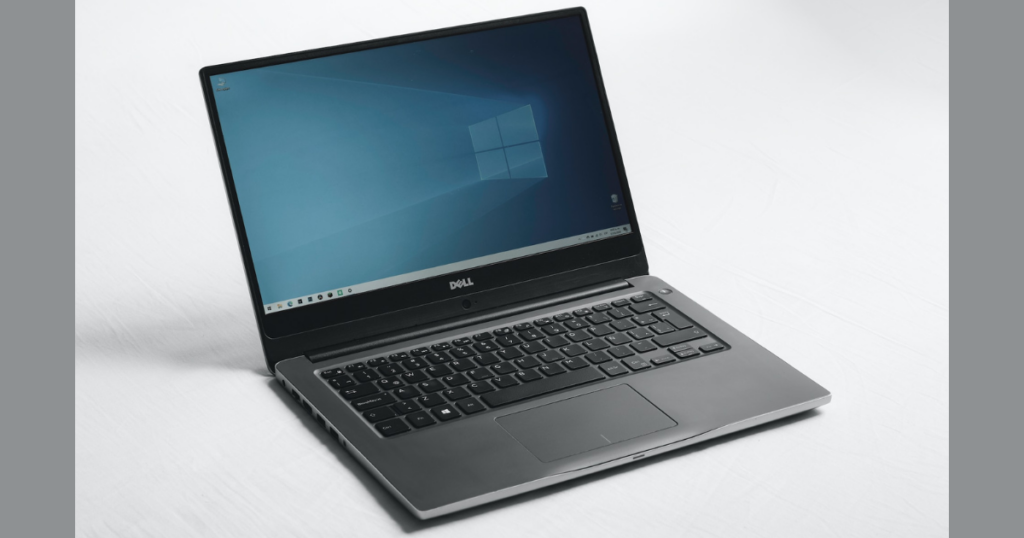Dell is one of the most popular laptop brands globally, known for its wide range of products and affordable prices. However, like all laptops, Dell laptops are susceptible to failure. If you’re considering buying a Dell laptop or already using one and are concerned about its reliability, you’re probably wondering about the failure rate.
In this blog post, we’ll look at the failure rate of Dell laptops, including the different types of failures that can occur, the most common causes of failure, and how Dell’s failure rate compares to other brands.
What are the Different Types of Failures That Can Occur with Dell laptops?
Dell laptop failure typically refers to any faults that can negatively impact your PC. These failures can be broadly classified into three:
- Hardware failures
- Software failures
- Human error
Hardware failures
Hardware failures are the most common type of failure observable in Dell laptops. Various factors, such as manufacturing defects, wear and tear, and overheating, can cause these failures.
Some common hardware failures that can occur with Dell laptops include:
- Hard drive failure
- Motherboard failure
- RAM failure
- CPU failure
- Display failure
- Battery failure
- Hinge displacement
- Brittle display screen
Software failures
Dell laptop software systems can also fail. Software bugs, viruses, and malware can cause these failures.
Some common Dell laptop software failures include:
- Operating system crashes
- Application crashes
- Blue Screen of Death (BSOD)
- Virus and malware infections
Human error
Negligence and error on our part as laptop owners are a recipe for laptop failure. This can include accidentally dropping the laptop, spilling liquid, or installing incompatible software.
Related – Dell vs. HP Laptops: Which is Better?
How Does the Failure rate of Dell laptops Compare to Other Brands of Laptops?
According to the 2009 SquareTrade Laptop Reliability Report, Dell laptops have a failure rate of 18.3% over three years. This is higher than the failure rate of some other brands, such as Asus(15.6%), Toshiba(15.7%), and Sony(16.8%). The HP brand was observed to be the most unreliable, with a failure rate of 25.6%, followed closely by Gateway(23.5%), Acer(23.3%), and Lenovo(21.5%).

Having said that, it is important to note that the data in this report is somewhat old. A more recent study by Consumer Report, published in 2016, found that the failure rate of Dell laptops is comparable to other brands. Dell laptops had an estimated failure rate of 22% at the end of the second year of usage.
Toshiba and Microsoft came out on top with 24% and 25% failure rates, respectively. HP, Asus, and Lenovo come just behind Dell at 20%, 20% and 21%. Apple, Samsung, and Acer were the most reliable, with estimated failure rates of 10%, 16% and 18%.
Overall, it appears that the failure rate of Dell laptops is comparable to other brands. However, keep in mind that laptop failure rates can vary depending on factors such as the specific model, usage, and manufacturing batch.
How Can You Reduce the Risk of Your Dell Laptop Failing?
There are a few things you can do to reduce the risk of your Dell laptop failing. Let’s quickly review some of them.
Keep your laptop clean and free of dust
Dust can build up inside the laptop and cause it to overheat, leading to failure. You can use a can of compressed air to blow out dust from the vents and other openings on the laptop.
Avoid using your laptop in extreme temperatures
Operating your laptop in extreme temperatures can stress the components and cause them to fail. Avoid using your laptop in direct sunlight or in very hot or cold environments.
Keep your laptop software up to date
Software updates often include security patches and bug fixes that can help protect your laptop from viruses and malware and improve its stability. You can check for software updates by going to the Dell website and entering your laptop’s service tag.
Avoid dropping your laptop or spilling liquid on it
Physical damage can damage the components inside the laptop and cause it to fail. Be careful when handling your laptop, and avoid using it in areas with a risk of spills.
Frequently Asked Questions
This question has no definitive answer, as it depends on your individual needs and preferences. Dell is a good option if you are looking for a laptop that is affordable and offers a wide range of choices. But Apple is a good option if you are looking for a laptop with a premium build quality, user-friendly interface, and tight integration with other Apple products.
Dell and HP are leading laptop brands but have different strengths and weaknesses. Dell laptops are known for their reliability, durability, and long lifespans. They are also generally more affordable than HP laptops. On the other hand, HP laptops are known for their customizability, innovation, and wide range of connectivity options.
Yes. If you take good care of your laptop and use it responsibly, it is possible to get 10 years or more of use out of it. However, it is important to note that even the best laptops will eventually need to be replaced.
Wrapping Up: What Is The Failure Rate Of Dell Laptops?
Dell laptops are generally reliable, but they can still fail. That said, there are simple things you can adapt to reduce the chances of this happening. By following what we’ve discussed in this piece, you can help extend the lifespan of your laptop and get the most out of your investment.
Remember, if you need assistance or encounter any laptop-related issues, don’t hesitate to contact TickTockTech, your trusted computer repair company. We are always available to provide top-notch support and ensure your laptop continues to serve you well.

